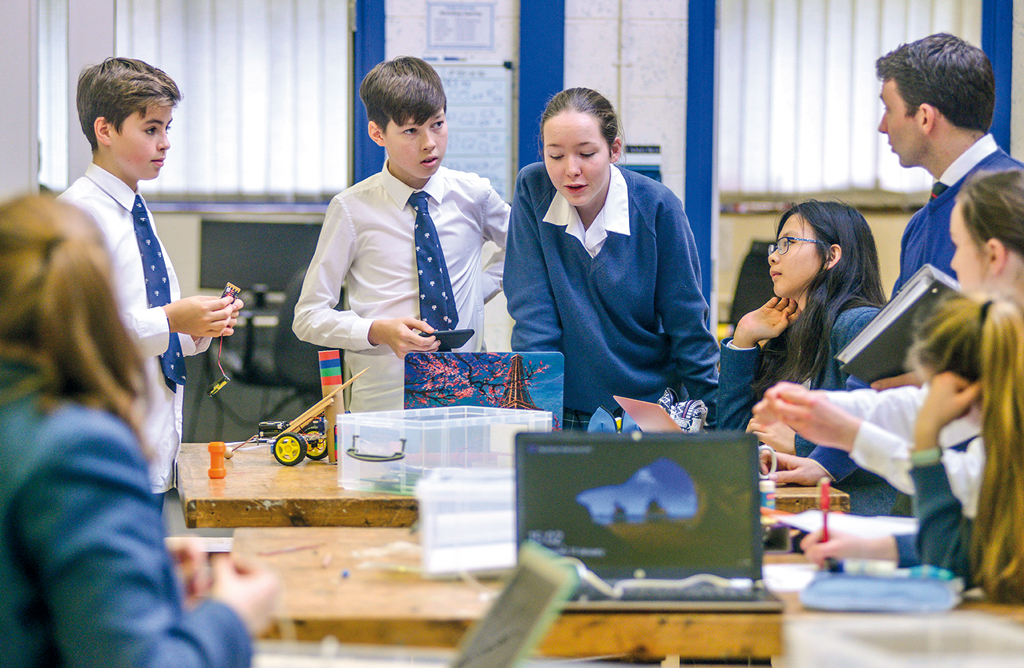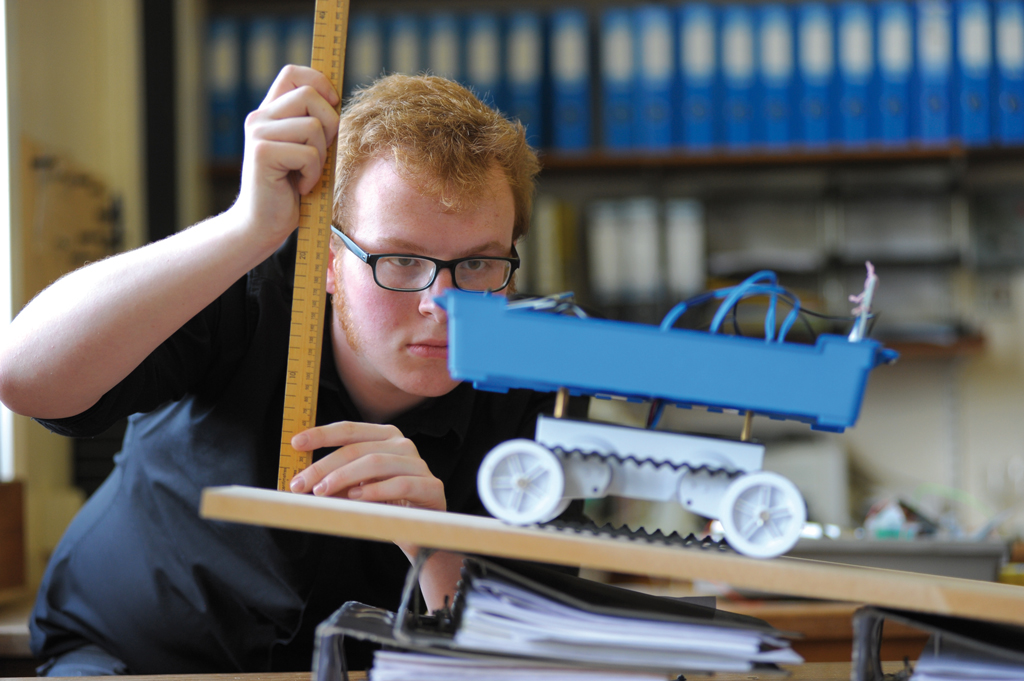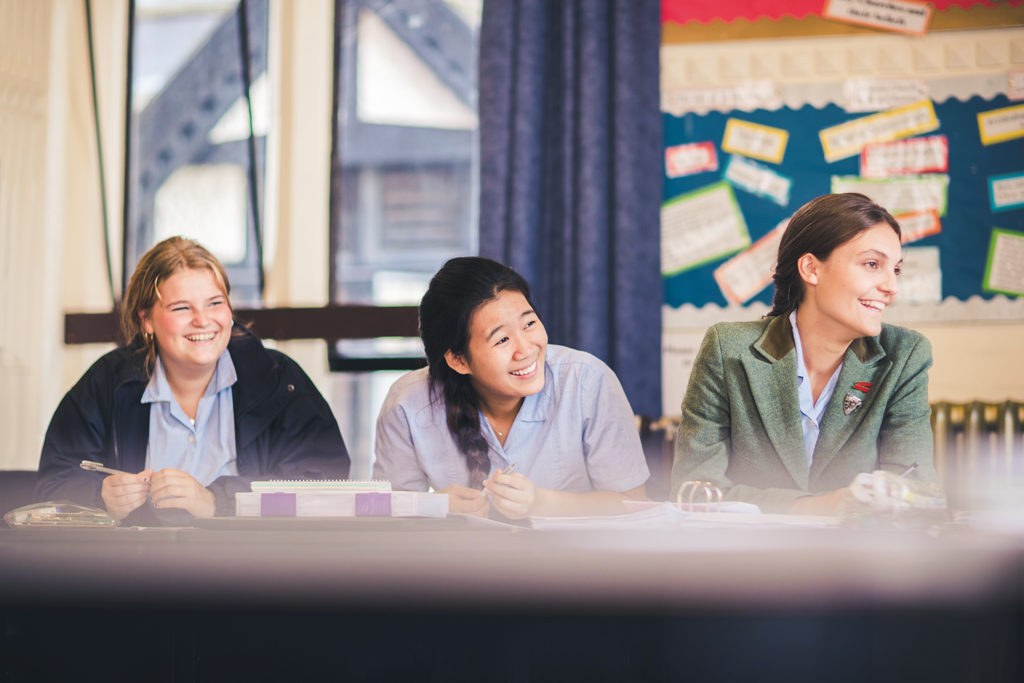Critical Thinking Lessons Teach Children to Question the Status Quo
By
6 years ago

Learning to think for themselves prepares pupils for a complex world, says Cristina Odone

Div, as my Wykehamist husband never fails to remind me, was the most formative intellectual experience of his school career. ‘Div’ is short for Division and is the absolute bedrock of Winchester College’s education: a succession of courses encompassing history, history of art, english literature, that complement the syllabus but are neither tested nor graded. The course is taught by a teacher (the ‘Div Don’) who enjoys complete freedom of choice with regards to the subject matter – one recent topic was the history of cricket.
‘Div is a lesson in thinking,’ says Laurence Guymer, a former head of history and head of one of the college’s ‘Div’ groups. ‘The course adds to the students’ sum of knowledge but above all to their approach to knowledge. They are able to examine and analyse any subject, venture their own hypotheses about them, and are not afraid of encountering opposing viewpoints or of having their mistakes pointed out to them. That is the legacy of Div.’
A Not-so-soft Skill
The Winchester Div may be unique, but more and more schools are copying the college in teaching critical thinking. In an era of propaganda wars waged across our media, both social and traditional, when even world leaders indulge in hyperbole and unverifiable assertions, young people more than ever need the skills to distinguish truth from falsehood – and the independence of mind to do so. That independence will stand graduates in good stead professionally, too: the workplace revolution means more and more people work remotely and flat hierarchies are replacing the traditional pyramid structure: only those with self-motivation and drive will succeed.

Anthony Seldon, Vice-Chancellor of Buckingham University, knows what he seeks in his undergraduates: ‘Critical awareness is key.’ The former headmaster of Wellington and author of the recent The Fourth Education Revolution, believes that ‘AI could transform schools, driving the teaching and enabling education to be personalised to each pupil’. But pupils can only benefit if the education system encourages them to question or query. ‘Too many schools fail to do so at present. AI will be infinitely more clever – so young people have to be able to smell the silicone. It is the critical part of critical thinking that is so important.’
Tom Marriott, Head of Academic Enrichment at Canford School, agrees. ‘Critical thinking should not be labelled a soft skill but a vital skill. We have
to teach students how to navigate the discourse in public life: there is a glut of information, much of it false, and they need to stand back and make the right call.’
At his school, Marriott says, questioning nostrums ‘underpin everything we do in terms of education and is embedded in our classroom approach – from chemistry lab to drama lesson.’
‘What are the killer questions in a topic? We get students to ask these themselves and in this way the act of learning becomes an active rather than passive process.’ It is a whole-school approach, with every department ‘working together to develop key skills of analysis and independent thinking. For instance, recently in history they were doing Stalin’s Russia, in English, they were studying Animal Farm, and then the students did a presentation with the music and drama departments to show what they had learned to their fellow students.’
Intersections with the IB
This inter-disciplinary approach to learning is one of the most important aspects of the IB, according to Becky Revell the IB coordinator at Cheltenham Ladies’ College. ‘We look at, for instance, what is “knowledge” in the arts and how is this different from in the sciences? Looking at subjects from multiple perspectives equips students with the tools for tackling the very complex and multi-disciplinary issues they face later on.’
She has been teaching the girls Theory of Knowledge, the IB’s version of critical thinking, since 2008 (when the school introduced the programme).
As part of their ToF subject, the girls ‘have to think about what they know,
how they know it, whether they trust the sources of their knowledge, and
whether they understand the different perspectives about this knowledge.’
The programme is popular – between 25 per cent and 30 per cent of the 850 girls at the school are enrolled in the IB. The school also offers students an Extended Project Qualification (EPQ), which allows them to embark on an 120-hour, independent project of academic value. The EPQ is teaching students organisational and analytical skills that universities (and, later, employers) value, according to Dr Amy Smith, Cheltenham’s Assistant Head of Sixth Form. She points out that Cambridge Assessment, the University of Cambridge’s local examinations syndicate, found that students who had done an Extended Project Qualification were more likely to do better in other subjects.
EPQ Value
At Heathfield School, Jo Meeson oversees the EPQ – and is fascinated by some of the subjects her tutees have chosen: superfoods, and whether they are a marketing wheeze or scientific fact; vaccination policies and people’s suspicion of them; and the problems of solitary confinement. As the art history teacher, Ms Meeson finds herself promoting critical thinking through the course work: she encourages the girls to ask themselves how they view a work of art, how that work of art fits into its historical context and what it reveals about ideals of beauty, use of symbolism or of myths. ‘The students love the subject and it lends itself perfectly to lessons in visual analysis – so crucial in our ever more visual world – and teaches them to consider topics thematically and remain conscious of wider trends and patterns.’ Universities, she reports, are offering to take in girls with lower grades if they have done an EPQ: ‘That says something about how much they value it.’
Mark Seldon, Director of Studies at Gresham’s School, agrees that independent work such as the EPQ and the ‘Extended Essay’, a 40-hour research project on a subject of their choice that is part of the IB programme, is a student’s best preparation for higher education. At Gresham’s both IB students and A-level students are required to write an Extended Essay: ‘This is an excellent way to introduce independent, academic inquiry to students… It is also great preparation for university, where undergraduates are expected to take on dissertations. Students at Gresham’s are not floored when they have to undertake research and analysis on their own.’

The school’s emphasis on debating also serves to develop students’ capacity for critical thinking. ‘Debating current affairs places critical examination of issues and evidence-seeking, at the heart of students’ learning. We have junior and senior debating teams, and hold mock elections that attract up to 95 per cent of our students – though the results are not always reflective of the national vote as, for instance, during the Brexit referendum. We have inter-house debating competitions, and our debaters regularly attend competitions at universities as well. They’re hugely popular with the students, and drive home the point that nowadays, no one can stay in their cocoon.’
‘Social media is 24/7 and we have to give young people the tools with which to defend themselves from the glut of fake news. We do that in every lesson – English, business and economics, IT…’
Mark Seldon, Director of Studies at Gresham’s School
Fighting Fake News
The historian and journalist Anne Applebaum agrees. She has set up Arena, a research centre at LSE, with a view to fighting propaganda: ‘One of the most important things we can do now is teach children how to analyse what they see online, how to understand context, how to distinguish between sources that fact check and publish corrections, and those which simply seek to influence or sell.’
Because it is so relevant to their lives outside of school, critical thinking is a popular subject among students: ‘They recognise that this is theory put into practice,’ says Mark Seldon, who reports that Gresham’s School students consider debating topics such as banning meat and abolishing juries as an indispensable part of their curriculum. The Trusty Servant, the Winchester alumni magazine, reprints an address by alumnus Oliver Normand, which explains how popular Div is with today’s students: ‘Its strap line should be “All you need to know about anything you want”’. And at Cheltenham Ladies’ College, Dr Amy Smith says that ‘the girls are incredibly enthusiastic about this subject’.
But do parents who are spending eye-watering sums to buy their children the best education money can buy – and secure them a prosperous future – endorse this approach? Can critical thinking help deliver the D1s and D2s
in pre-Us that top universities want?
A Balancing Act
At Canford, Tom Marriott admits that ‘we know we have to achieve a delicate balance between holistic teaching and testing… We have to ask ourselves how far we dare go from the syllabus. But we believe that if we fuel the questioning spirit in our students, we are teaching them to be good learners. And good learners do well in exams.’
Laurence Guymer says that he and his fellow teachers at Winchester ‘are conscious that the world has become more utilitarian – we have to keep in mind that we have a very quantifiable objective to attain: the top universities will only look at candidates with A stars in their GCSEs and D1s and D2s in Pre-Us, so exams are important. But here at Winchester we complement the cut and thrust of the competition and the examinable subjects with Div.’ The approach is justified, he suggests: ‘I have a friend who is an admissions tutor at Oxford – a law tutor – who told me that she sometimes throws into an interview a made up law and asks the candidate “what do you think of this?” Many of the would-be undergraduates are stumped: they have not been taught how to work through a problem – especially not under pressure. Whereas she has found students from Winchester are absolutely unperturbed by this, and work through the problem out loud.’
Dr Amy Smith at Cheltenham, agrees. ‘A lot of subjects – especially in the sciences – have lost coursework as a result of the latest reforms of the exam boards. This leaves students without the opportunity to learn how to analyse sources, examine multiple perspectives and look for trends across disciplines. A programme that offers critical thinking fills this gap.’

Independent schools are equipping their students with the skills to examine and question the world around them, even as that world changes at an accelerated pace. In the process, young people are learning about truth – and above all, how to be true to themselves.
This article was originally published in School House Magazine Spring/Summer in March 2019.
READ MORE: Incredible Global Schools Worth the Long-haul | London Schools: A Cultural Sweetie Shop



